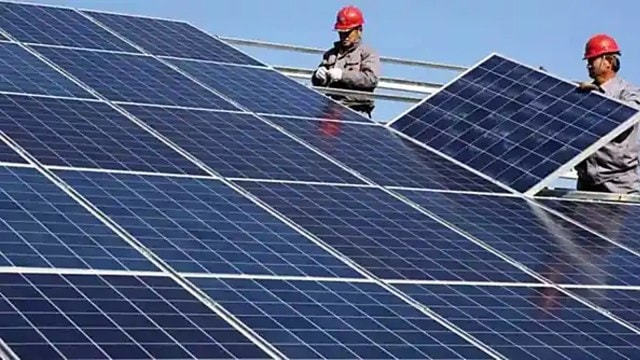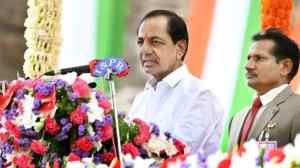More than 5,000 residential consumers in Delhi have rooftop solar panels
Rooftop solar panels are also a big hit among cooperative group housing societies in Delhi. More than 100 societies and apartment complexes have opted for rooftop solar panels, an official said.
 According to officials, the key benefits of rooftop solar panels are reduced electricity bills, energy saving and clean air. (File Photo)
According to officials, the key benefits of rooftop solar panels are reduced electricity bills, energy saving and clean air. (File Photo)With Delhi Chief Minister Arvind Kejriwal announcing a new solar policy earlier this week to push people towards adopting solar systems, data shows that more than 5,000 residential consumers in the city have installed rooftop solar panels under the Delhi Solar Policy, 2016.
According to the data collected by The Indian Express, 5,346 residential consumers and cooperative housing societies have installed rooftop solar panels till January 2024. Among these, 1,696 are in north Delhi, an area under the Tata Power Delhi Distribution Limited (TPDDL), and have achieved a power capacity of 19.72 MW. In south, central, east and west Delhi, areas that fall under the BSES, 3,650 panels have been installed.
“The response to rooftop solar net metering has been incredibly encouraging in the BSES area. Consumers across categories, including residential, educational (and schools) and commercial establishments, have warmed up to rooftop solar net metering in a big way,” a discom official said.
The official added that after the domestic areas, the highest number of net metering connections in the BSES areas are in the commercial segment (1,087), educational institutions (939), industrial segment (85) and others (129).
The official said rooftop solar panels are also a big hit among cooperative group housing societies and around 100-plus societies and apartment complexes in Delhi have opted for rooftop solar panels with a sanctioned load of over 6 MWp.
“If we analyse the annual savings accruing to the consumers, savings are over Rs 110 crore annually. By opting for rooftop solar, consumers in the commercial category are estimated to save around Rs 49 crore annually, followed by educational institutions (Rs 30 crore), residential consumers (Rs 26 crore), Others (Rs 7 crore) and industrial (Rs 5 crore),” said a discom official.
According to officials, the key benefits of rooftop solar panels are reduced electricity bills, energy saving and clean air.
“Every KW of rooftop solar generates about 100–120 units of electricity every month and the cost of the system can be recovered in around four years. A typical 10 KW of roof-top solar connection with a monthly consumption of 1,200 units every month can help save around Rs 82,000 annually,” said a discom official.
Delhi government officials, however, said the numbers are not that high and that is what prompted Kejriwal to announce the Delhi Solar Policy 2024 earlier this week.
In the new policy, for every unit of solar power generated, the Delhi government will offer a generation-based incentive (GBI) of Rs 3 per unit for small rooftop plants (upto 3 kW) and Rs 2 per unit for larger plants (3 to 10kW). Also, there are no minimum generation conditions to receive incentives. The amount will also be adjusted against the monthly electricity bill of the consumer and the excess amount will be deposited into the consumer’s bank account by the discom every month. The GBI will be disbursed on a pro-rata basis for the solar plant capacity greater than 10 kW.
Further, there was no capital subsidy or peer-to-peer trading and the role of discoms was also limited to facilitate net-metering in the RESCO model under the previous policy. Now, all the conditions have been removed.












